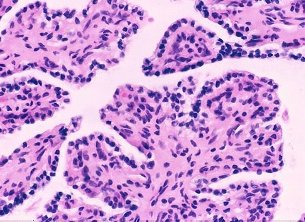The discovery of ovarian cysts is not an automatic diagnosis of infertility.
While some types of ovarian cysts can cause infertility, others have no impact.
If you have been diagnosed with ovarian cysts it does not mean you will become infertile.
Even the cysts that can cause infertility do not cause it immediately. If your cysts are found early, before they become large or cause complications, it is possible to have children with no complications.
The following types of cysts are most commonly diagnosed. Most do not lead to infertility; however, there are two types that can be very serious.
Functional Cysts
The most common type of cyst found in the ovaries is a functional cyst. These cysts will form during a normal period and in most cases they do not have any impact on fertility.
These cysts can actually provide indications to your doctor that your normal fertility functions are operating properly.
Cystadenomas
Cystadenomas are cysts that grow on the outside of the ovaries. These cysts will require treatment with hormonal therapy or they will need to be removed with laser surgery. However, these cysts do not have an impact on fertility or reproduction.
Dermoid Cysts
While most cysts will contain liquids or fluids, dermoid cysts contain solid matter such as skin, teeth, or hair.
These can be remnants that are left behind after a miscarriage or after delivering only one twin, when the other does not develop. While these cysts are very tragic, they will have no effect on future reproduction.
Endometriomas
This type of cyst is caused by endometriosis cells [Endometriosis symptoms]. These cells make up the lining or the uterus or endometrium. When these cells develop or move to the outside of the uterus they can form cysts that not only affect fertility, but can also be life threatening.
These cells are directly linked to ovarian cancer, and in some cases can be very hard to eliminate. In the worst case you may require a hysterectomy procedure to rid the body of all abnormal cells.
Usually if the cells are found early it is possible to freeze or burn the cells and eliminate them. However, if the condition goes undetected many conditions can occur.
Polycystic Ovaries
Polycystic ovary syndrome is a condition in which clusters of several small cysts develop on the ovaries. The term polycystic means “many cysts”. In this condition the cysts may look like small clusters of grapes that form on, or around, the ovaries.
The most common symptoms of this condition are abnormal periods and elevated hormone levels. Unfortunately, this condition can lead to infertility. In the most severe case daily medication may be required to stop the spread to other organs, or surgery may be an only option.
While there are other types of cysts that can occur in the reproductive system these are the most common. If you feel you may be at risk, or if your family history includes any of these conditions, you should consult with a physician.



This is a very good quick description of the types of cysts that occur and is a good guide to what is detrimental to your fertility and what you should not worry about.
It is very important to have yourself checked whenever you feel your body is trying to tell you that something is wrong. You will then be able to identify the problem before it becomes dangerous.
A dermoid cyst is a saclike growth that is present at birth. It contains structures such as hair, fluid, teeth, or skin glands. Dermoid cysts develop from cells which make eggs in the ovary. An egg has the potential to develop into any type of cell. So, these cysts can make different types of tissue.
I havent read anywhere that dermoid cysts are remnants of failed pregnancies.